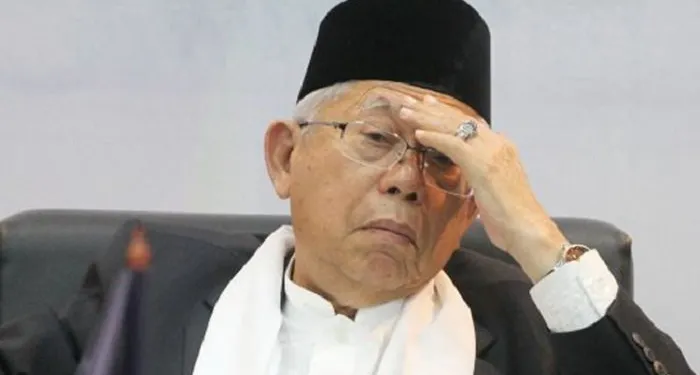SHAFTED BY ETIQUETTE
Just a fortnight to Indonesia’s big 14 February election and the mood is shifting as more than 200 million electors realise the reality - they’re being played by the oligarchs like puppets.
Last month this column was getting ahead of itself by speculating that front-runner Prabowo Subianto, 73, a cashiered former general from last century's politics, had snatched a tactical victory by recruiting Gibran Rakabuming Raka, 36, as his candidate for vice president.
The former mayor of Solo in Central Java is the eldest son of the popular current president Joko ‘Jokowi’ Widodo constitutionally barred from a third five-year term.
Through pairing with Gibran, Prabowo planned to capture the youth vote by appealing to the majority under - 40 cohort - people he knows little about. His only son from a failed marriage with Soeharto's daughter is fashion designer and socialite Didit Hediprasetyo who lives in Europe.
For a while, it worked till electors remembered that vice presidents in the past have been powerless. The current holder was drawn from an Islamic group to give Jokowi an image of a pious leader and offset slurs that he's a Christian Communist in disguise.
This was the tactic used at the 2019 election. At the time Jokowi was promoting himself as an action man fixing the nation's crumbling infrastructure, more comfortable in a hard hat talking to engineers with clipboards rather than priests with holy books.
Bit too secular for the hard-liners parading themselves as the nation's moral arbiters, so Islamic scholar Ma'ruf Amin was shanghaied as vice president.
Now 80 he's the Republic's oldest VP. If he's done anything in the job other than chant Koranic verses with fellow scholars and fathered nine kids he's aroused no interest in the wider public.
Credit: Daily News Indonesia
In earlier times he tried to stop Muslims saying Merry Christmas to unbelievers. His reputation floundered when he was videoed breaking his own rule.
The idea that he might take over should Jokowi tumble under a high-speed Chinese train while commissioning another new track was worrying indeed, for the man has no known administrative abilities or wider interests apart from religion and English football. To be precise - Liverpool.
Gibran doesn’t easily fit the traditional job description: He defied his Dad’s desire that he take over the family furniture business and instead started his own catering company, suggesting he wants to go his own way. It has reportedly earned him more than Papa’s woodworking.
Gibran has no military background and despite his promoters' attempts to show him as a fun fellow from a bang-bang smartphone game, he comes across as dour and serious Suddenly he’s revealed a cynical side that worries the public - if social and mainstream media responses are any guide.
In the last TV debate, he used sarcasm - a common tactic in Western culture and maybe picked up when he was apparently a University of Technology Sydney student though he graduated in Singapore in 'management development'.
At the TV studio, Gibran peered around the podium claiming he was looking for the policies of his opponents. He also flummoxed them by asking about 'greenflation' a trendy Western economic term so new it's still being defined.
Not funny. Voters were reminded that Javanese etiquette requires the young to respect the old. The two VP candidates the subject of his sneers were Muhaimin Iskandar, 57, a former Minister for Manpower, and Mohammad Mahfud Mahmodin, 66, a legal academic.
Gibran bowed and kissed their wrists before the debate started, then started punching, turning from a polite young man to a smart arse-and that’s not the Javanese way.
His enrolment may yet turn out to be an impediment to Prabowo’s ambition to U-turn Indonesia back to the days when the military ruled.
Indonesian schools teach a warped version of history where the army in 1965 saved the nation from a real or imagined Communist takeover. Doubting this account was considered heretical.
The genocide of half a million real or imagined Reds and their mates by army-directed militias is rarely mentioned.
Only now are some daring to question the government’s rigid portrayal of the past, and wondering about Prabowo’s role in the disappearance of 13 students protesting in 1998 against Soeharto’s 32-year authoritarian rule.
Slowly this other history is creeping into the discussions despite Prabowo reminding critics that he’s never been charged with human rights abuses, though the accusations were so strong he was barred from the US. That’s something only those who lived through the era of fear remember.
Bright, young modern Gibran risks his reputation by tolerating this association.
But maybe few care. Like Trump supporters, they reject every wrongdoing of their hero. If he did bad things decades ago then they must have been necessary.
Two weeks more to secure a lead - or stuff up again. One more TV debate to go on 4 February. The tea-leaf readers reckon no clear winner so a run-off on 26 June. If right, tense times loom.
Duncan Graham has an MPhil degree, a Walkley Award, two Human Rights Commission awards and other prizes for his radio, TV and print journalism in Australia. He lives in East Java.
First published in Pearls & Irritations, 31 January 2024: https://johnmenadue.com/shafted-by-etiquette/
















